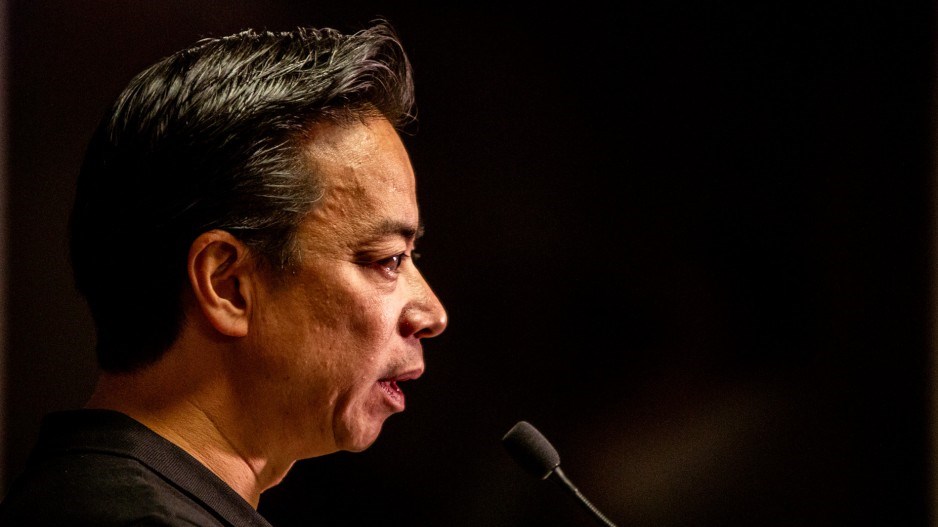The Mayor’s Budget Task Force that delivered Vancouver city council a blueprint to improve finances kept minutes for one meeting, according to the city’s freedom of information office.
Randy Pratt, the MLA Canada real estate president who chaired the volunteer group, presented the 36-page report at city council’s Tuesday meeting. Mayor Ken Sim moved to strike a committee to implement recommendations that are aimed at increasing revenue while cutting costs and easing the tax burden.
Sim announced the blue-ribbon panel last April 3. It included Pratt and six other chartered professional accountants and financial analysts plus four advisors: former Musqueam Indian band councillor Wade Grant, Greater Vancouver Board of Trade CEO Bridgitte Anderson, Infrastructure BC CEO Mark Liedemann and Joy MacPhail, the chair of BC Ferries and N’chkay Development Corp. They were assisted by 20 student researchers from the University of B.C., Simon Fraser University and Langara College.
Pratt estimated they worked between 40 and 300 hours each over the course of nine months and the group conducted 300 to 400 interviews. The task force needed an extension beyond its original October deadline. It did not hold a public hearing.
The only minutes released, for the period of April 3-Nov. 26, 2023, were for a meeting on April 24 in the Mayor’s Ceremonial Office at city hall where Sim welcomed the task force members, observers and guests. Trevor Ford, now his chief of staff, reviewed the mandate and the related council motion.
Patrice Impey, the city’s chief financial officer, and Colin Knight, the financial planning and analysis director, gave an overview of the city’s finances, emphasizing the city’s AAA credit rating and its limitations.
“Budget dynamic of half of property taxes collected are distributed to other levels of government over which little control,” said the bullet points. “Key challenges are infrastructure renewal, non-traditional sources (housing and child care typically funded by other levels of government) and capital deficit.”
Task force members discussed resources, such as researchers, a meeting secretary and copy/presentation writers. They agreed to weekly Zoom meetings and monthly in-person meetings with observers, in addition to interviews with Impey, the city auditor general Michael Macdonnell, retired general manager of business planning Ken Bayne, council liaisons Lenny Zhou and Brian Montague and city manager Paul Mochrie.
Under the heading of workflows, they were to identify 10 key priorities and consider operational, structural and cultural issues, along with outsourcing and benchmarking with other municipalities and governments. Though work was just beginning, they were already pondering the final product.
“Observers to provide direction and test guidance of ‘how report will land’ with city and all stakeholders as well as seeing process/report through the lens of reconciliation,” the minutes said.
Pratt did not explain why city hall released only those minutes from April 24.
“There were a number of meetings at city hall early in the process as I got volunteers recruited/committed and volunteer/[non-disclosure agreements] agreements signed. Those meetings would have had minutes,” Pratt said by email. “Once we were constituted, we then began our meetings, work, interviews and research offsite, mostly though Zoom calls to be efficient as we each had dozens of such meetings and no minutes were kept.”




